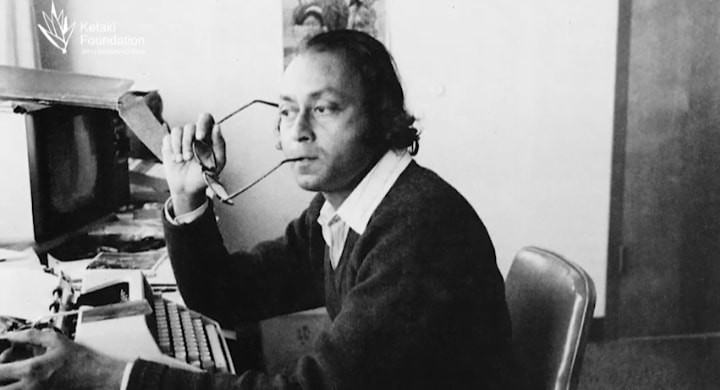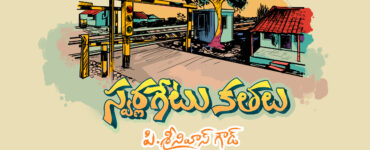I do not recall the first time I encountered Jayanta Mahapatra’s poetry. However, I do remember that having read him the first time, I went back to reading more of his poetry over the years. I never met him in person, but I felt I knew him well. I did know him through his poems. In January 2023 I got invited to the Chandrabhaga Poetry Festival, but it was an online one, so I missed my chance of meeting him in person. As I attended the memorial meeting in his memory last Sunday, I heard poets and friends talking about his innocence, his reaching out and his mentoring. I got to read the specific instructions he had given out about what was to be done after he was gone. Here was someone who was categorical about what he wanted, he wanted to have a smooth crossing over, of no fanfare when the end came.
I went back to reading his poems again, that was Jayanta Mahapatra for me. “Hunger” that talks of the realities of existence, of poverty and an unjust world. In simple lines, Mahapatra says so much, the lines hit “I heard him say: My daughter, she’s just turned fifteen…/
Feel her. I’ll be back soon, your bus leaves at nine.” “Freedom” speaks of the idea of freedom, that is difficult to find, of how it means different things for different people, of the need for looking for freedom – “Trying to find the only freedom I know,/ the freedom of the body when it’s alone.”
“Grandfather” speaks of his grandfather who had converted to Christianity during the famine of 1866 and speaks of the choices his grandfather made and the reasons for those choices,
For you it was the hardest question of all.
Dead, empty tress stood by the dragging river,
past your weakened body, flailing against your sleep.
You thought of the way the jackals moved, to move.
There is a questioning of his grandfather’s actions, the repercussions of which he has had to deal with. As he tries to grapple with the reasons he tries to understand the whole scenario. The poem reveals a sensitivity and deep sense of anguish
“Dawn at Puri” along with “Hunger” is the most read and the most often prescribed poem in syllabi. The poem presents the sea beach at Puri and moves from the description of the visual beauty to the depiction of people at the beach –
White-clad widowed Women
past the centers of their lives
are waiting to enter the Great Temple
Their austere eyes
stare like those caught in a net
hanging by the dawn’s shining strands of faith.
As I read these and other poems of Mahapatra I am drawn to the world of poetry that speaks of the realities of existence, weaving the mundane and the philosophical, the vagaries of life and thought in myriad ways. An important aspect of his oeuvre are his translations from Odia into English. Himself a bilingual poet, Mahapatra’s poetry speaks of the marginalized and the weak. The flavours of his home town Cuttack find their way into his poems lending them a regional charm that goes much beyond being mere cultural registers to have a life of their own.
The latest issue of Chandrabhaga journal appeared just a few days before he fell sick. The work done well, as always, a labour of love. As I moved through the pages I could feel the essence of the man who crafted it all, the poet who cared so much for poetry and literature. His swan song and his statement that he remains in poetry, forever.
*









Add comment